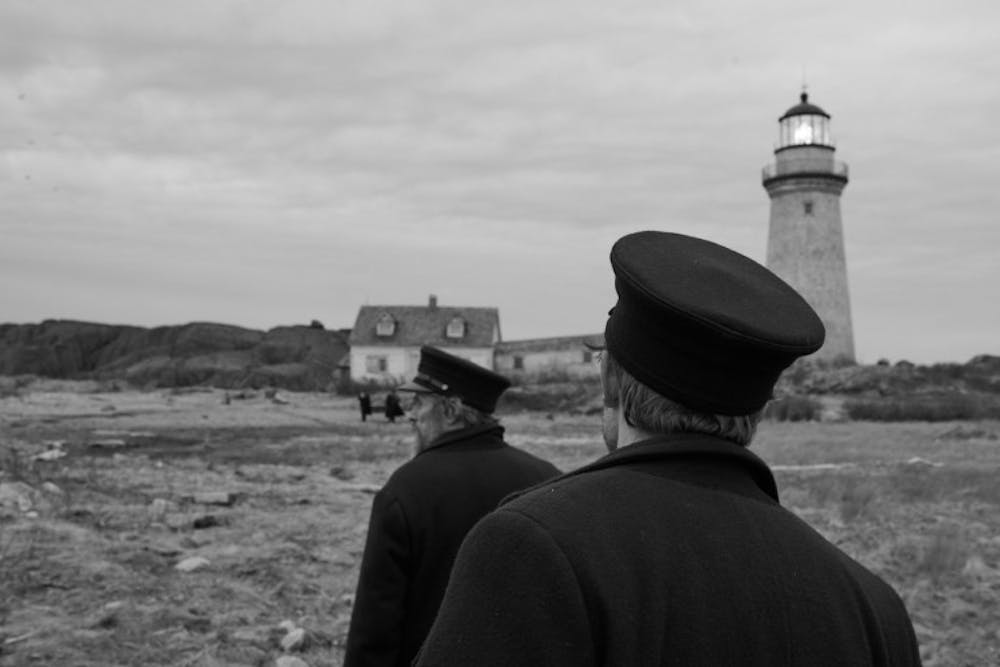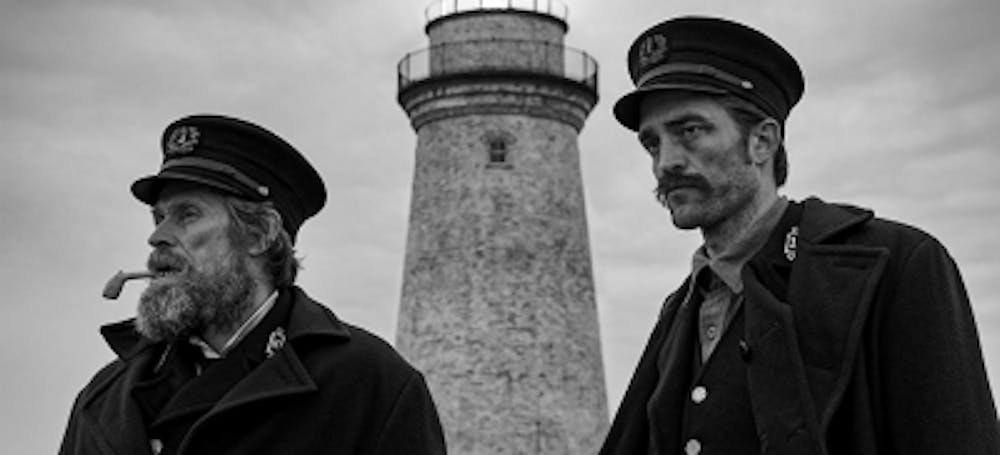New England-born director Robert Eggers is one of the many on-the-rise directors that critics and film-lovers should look out for. Originally starting out as a production designer in theater, he transitioned to film and made his debut back in 2015 with the religious period horror film, The Witch. The film followed a Puritan family in 1630s New England, who are haunted by an unknown evil that lurks in the woods at the edge of their farm. Upon release, it received praise from critics, namely for its cinematography and its use of slow-building, atmospheric horror. However, it was divisive among the general moviegoing audience. They went in expecting a traditional modern horror movie with blood and jump scares. Instead, they got a minimalist, introspective psychological horror movie that explored religious paranoia in Puritan times. Now, Eggers brings his follow-up with the maritime psychological horror film, The Lighthouse.
Taking place on a remote New England island in the 1890s, the film follows two lighthouse keepers, Thomas Wake (Willem Dafoe) and Ephraim Winslow (Robert Pattinson), who tend and maintain a lighthouse for a four-week shift. Tensions between the two men arise, exasperated by Wake’s alcoholism. Cut off from the rest of the world, their stay is extended when a storm hits the island. Days begin to blend together, and the two men lose their grasp on reality as they slowly begin to go insane.
A two-man show between two talented actors

Image from IMDb
With a film like this, you need two actors who are capable of carrying it, and both Pattinson and Dafoe are up to the task. Both of them are incredibly talented and woefully underrated actors. Pattinson, for one, has washed away the stigma of being in the Twilight films, and has proven himself as an actor with some fantastic performances, be it in Good Time or The Rover. Here, he gives what has to be the best performance of his career so far. He conveys every human emotion that is possible as Winslow slowly but surely begins to succumb to the depths of insanity.
Dafoe, on the other hand, is no slouch as Wake. He’s completely unrecognizable, with his distinct jawline and recognizable voice hidden by a big beard and withered, bizarre accent. He perfectly plays the part of an old salt, characterized as a cross between Quint from Jaws and the Sea Captain from The Simpsons. To a point, he comes across as a parody of an old sailor, and this is even acknowledged within the film. His performance is nothing short of fantastic and is every bit as good as Pattinson’s. A particular scene that stood out and stuck with me is when Wake gives a monologue, beseeching Neptune to come and strike Winslow down. His face looks absolutely demonic in that scene, and the monologue he gives is incredibly haunting.
In spite of this being a movie about two men slowly descending to insanity, it is a surprisingly funny film. This includes Wake going into exuberant detail on how he wants Winslow to clean the floors, and a scene where the two argue about Wake’s cooking. The comedy is really funny and adds some much-needed levity to the movie; however, it does not detract from the movie’s dark, foreboding tone. That’s impressive, and in the hands of a lesser director, the juxtaposition of comedy and seriousness could result in tonal whiplash.
Haunting and harrowing presentation

Image from IMDb
Something that’s apparent right off the bat is that the film is in black and white. It’s one thing to make a movie look like an older movie by filming it this way, but Robert Eggers goes above and beyond when it comes to this aspect. The film was shot on 35mm film and is set to a 1.19:1 aspect ratio. It makes the film look like something that was made in the 1920s or 1930s, in the early days of filmmaking. It also has the effect of enhancing the experience, as the movie has a cramped, almost claustrophobic feeling to it. Combine these two elements with the story, and it makes the movie come off as if it’s an adaptation of an Edgar Allan Poe or HP Lovecraft story. All in all, the technical aspects are fantastic, and make it feel like a movie out of its time.
Similar to The Witch, the movie also has some fantastic cinematography. It captures the stark bleakness of the New England island, making it look very small and lonely. It does a great job in enhancing the atmosphere of the film, making one feel the isolation that Winslow and Wake are experiencing.
However, The Lighthouse is not a movie without faults. It has the same problem that The Witch had: it’s usage of period-accurate dialogue. It primarily comes from Wake, and when combined with his thick accent, it makes it hard to understand what he is saying; however, this is not as nearly as bad as it was in The Witch. While I had difficulty understanding what Wake was saying, I could still follow along with the movie.
It should also be noted that this movie is not a film for everyone. For those wanting a straightforward film that’ll hold your hand and give you concrete answers, you’ll be sorely disappointed by this film—some will hate the movie because of this. However, The Lighthouse is a movie that sticks with you and makes you ponder over what it meant, making it a much more engaging film.

Images: IMDb
Featured Image: IMDb
For more entertainment related content, visit us at Byte BSU!




















